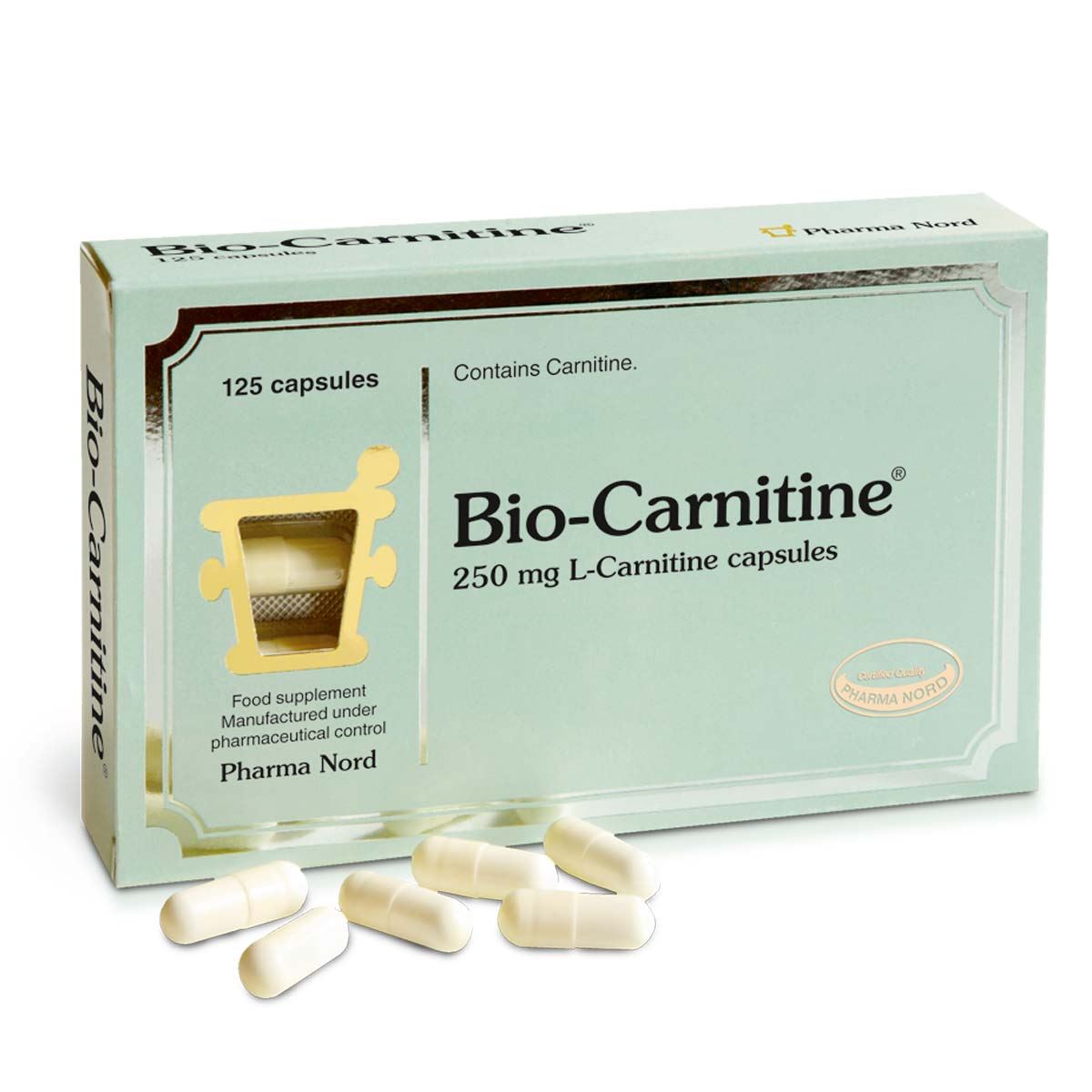Pharma Nord Bio-Carnitine 250mg - 125 Capsules
Pharma Nord Bio-Carnitine 250mg - 125 Capsules is backordered and will ship as soon as it is back in stock.
Couldn't load pickup availability
L-Carnitine Supplements by Pharma Nord
Pharma Nord's L-Carnitine supplements contain the biologically active L-form of carnitine, which is naturally synthesized in the body. Carnitine is a substance derived from the amino acid lysine, playing a role in energy production by facilitating the transport of fatty acids into the mitochondria.
About Carnitine
Carnitine is found naturally in a variety of foods, including red meats like beef and lamb, while lower levels are present in white meats and vegetables. For individuals with dietary restrictions or increased demands, supplementation may help support dietary intake of carnitine.
Key Features of Pharma Nord's L-Carnitine
- Contains the active L-form of carnitine.
- Manufactured to high pharmaceutical standards.
- Designed for individuals looking to supplement their dietary carnitine intake.
Why Choose Pharma Nord?
Pharma Nord is dedicated to producing high-quality supplements designed to meet stringent standards for safety and efficacy.
- Each capsule contains 250 mg of L-Carnitine, the only biologically active form.
- Perfectly balanced to give optimum absorption, L-Carnitine closely resembles the amino acid in the body
- Gluten Free / Lactose Free / Soy Free / Yeast Free / Sugar Free
Ingredients
L-Carnitine-L-Tartrate
Bulking agent: Microcrystalline cellulose
Capsule shell: Hydroxypropyl methylcellulose
Anti-caking agent: Magnesium salts of fatty acid
Firming agent: Silicon dioxide
Colour: Titanium dioxide
Nutritional Information
| One Capsule Contains: | Per Tablet | % NRV* |
|---|---|---|
| L-Carnitine | 250mg | ** |
|
encapsulated in Vcaps vegetarian capsules |
* NRV = Nutrient Reference Value.
** NRV not established.
Directions
1 capsule per day or as recommended by a physician.
Do not exceed recommended amount.
Suitable for vegetarians and vegans.
Pregnant and lactating women and those on medication should seek professional advice prior to taking supplements.
Nutritional supplements should not be used as a substitute for a varied diet and a healthy lifestyle.
Advisory Information
Pregnant and lactating women and those on medication should seek professional advice prior to taking supplements.
Nutritional supplements should not be used as a substitute for a varied diet and a healthy lifestyle.
Storage:
Room temperature out of direct sunlight. Keep out of reach of children.



